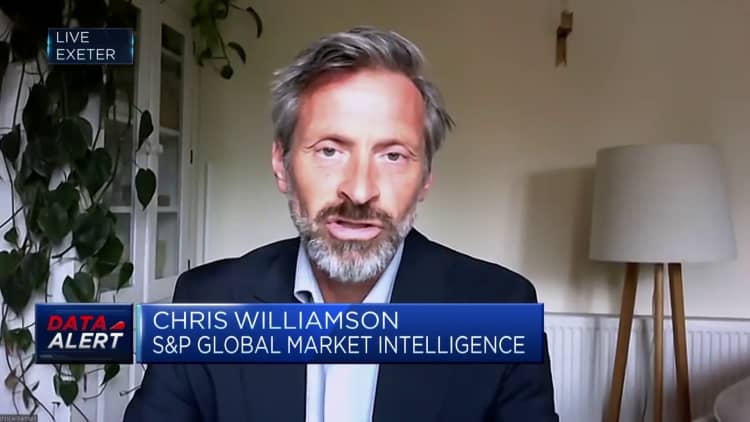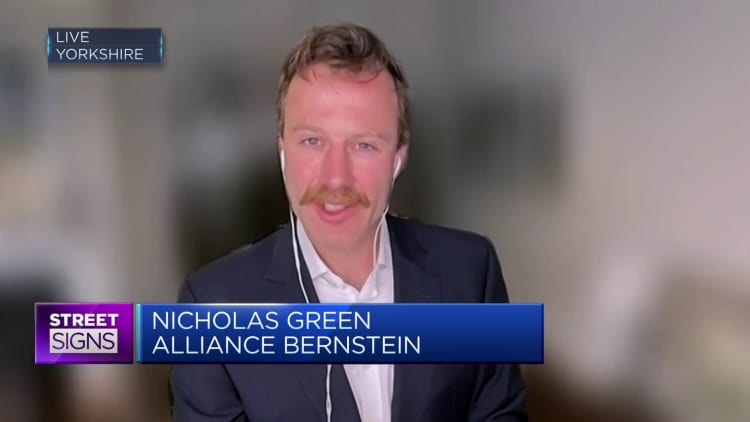European stock markets closed lower Friday after four sessions of declines.
The Stoxx 600 index closed 0.3% lower, with most sectors in negative territory. Oil and gas stocks fell 2.2% as oil prices traded lower, and mining stocks dropped 1.7%. Health care and telecoms stocks led modest gains, each closing 0.7% higher respectively.
Siemens Energy, the spinoff of the German conglomerate, plunged 37% after ditching its profit outlook for the year because of issues in its wind turbine division.
European markets
Downbeat market sentiment has been reflected globally, with Wall Street heading for a losing week and Asia-Pacific markets largely lower, as investors process a variety of interest rate decisions from central banks and what they mean for growth.
The Bank of England delivered a hawkish surprise Thursday, hiking by 50 basis points after both wage growth and inflation figures came in hotter than expected.
It comes after the European Central Bank enacted a 25 basis point rate rise, while the U.S. Federal Reserve opted for a pause — though it stressed more hikes are likely.
China's central bank last week lowered lending rates as the economy's much-anticipated post-Covid rebound stutters.
Oil prices are on course for a more than 3% drop this week, according to Reuters, pulled down by demand concerns and the economic growth outlook.
On the data front, U.K. consumer confidence as measured in a GfK survey ticked higher for a fifth consecutive month and by more than expected despite intense cost-of-living pressures and concerns over a coming mortgage crunch.
Also out of the U.K., retail sales figures showed a 0.3% rise in May, following a 0.5% uptick in April.
In the euro zone, flash purchasing managers' index data showed a fall from 52.8 to 50.3, representing a near-stalling of growth. A reading below 50 indicates a contraction.






